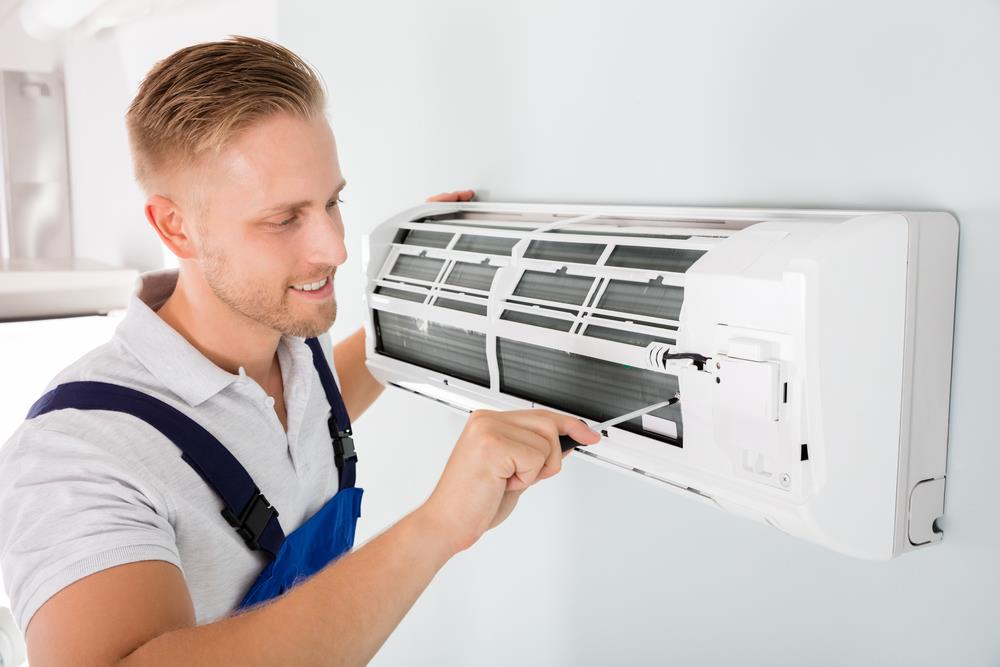
In the hot Florida climate, a malfunctioning air conditioner can quickly become a significant inconvenience. For many homeowners, the temptation to tackle AC repairs themselves is strong. While there are some issues you can address on your own, others require the expertise of a professional. Understanding which tasks are suitable for DIY repairs and which are best left to the experts can help you manage your AC efficiently and avoid costly mistakes.
DIY-Friendly AC Repairs
- Changing Air Filters: Replacing air filters is one of the simplest and most important maintenance tasks you can perform. Dirty filters can restrict airflow and force your AC to work harder, leading to higher energy bills and potential damage. Check your filter every 1-3 months, depending on usage, and replace it as needed.
- Cleaning the Outdoor Unit: Keeping the outdoor condenser unit clean can improve your AC’s efficiency. Clear away debris such as leaves, grass, and dirt that may obstruct airflow. Use a garden hose to gently wash the fins, but avoid using high-pressure water that can cause damage.
- Checking the Thermostat: Sometimes, the issue might be as simple as an incorrectly set thermostat. Ensure that your thermostat is set to the cooling mode and check the temperature settings. If your thermostat uses batteries, replace them if necessary.
- Inspecting Ductwork for Leaks: While you should not attempt major ductwork repairs yourself, you can inspect for visible leaks or damage. Look for disconnected or damaged sections and seal minor leaks with duct tape or mastic sealant.
- Clearing Drain Lines: The condensate drain line can become clogged over time. Use a wet/dry vacuum to remove any blockage. This helps prevent water damage and maintains proper drainage from your AC system.
When to Call a Professional
- Electrical Issues: If you experience electrical problems such as frequent tripping of circuit breakers or inconsistent power supply, it’s best to call a professional. Electrical repairs involve safety risks and require specialized knowledge and tools.
- Refrigerant Leaks: Handling refrigerant requires certification and specialized equipment. If you suspect a refrigerant leak, contact a licensed HVAC technician. They can safely handle refrigerant and ensure your system is properly recharged.
- Complex Mechanical Repairs: Issues with the compressor, blower motor, or other critical components often require professional attention. These repairs involve intricate components that require specialized training and tools to diagnose and fix.
- System Malfunctions: If your AC system is experiencing significant malfunctions, such as not cooling properly or making unusual noises, a professional technician can perform a comprehensive diagnostic to identify the root cause and recommend appropriate solutions.
- Installation and Replacement: Installing a new AC unit or replacing an old one involves complex procedures, including proper sizing, securing connections, and ensuring system efficiency. These tasks should be handled by experienced professionals to guarantee proper installation and optimal performance.
Conclusion
While DIY AC repairs can be a cost-effective way to address minor issues, understanding your limitations is crucial for maintaining the efficiency and longevity of your system. Tasks such as changing filters, cleaning the outdoor unit, and clearing drain lines are manageable for most homeowners, while more complex repairs involving electrical issues, refrigerant, or major components should be left to professionals.
If you encounter any problems beyond basic maintenance or need assistance with complex repairs, consult a trusted HVAC professional in Florida. They can provide expert diagnosis and repairs, ensuring your AC system operates efficiently and reliably.